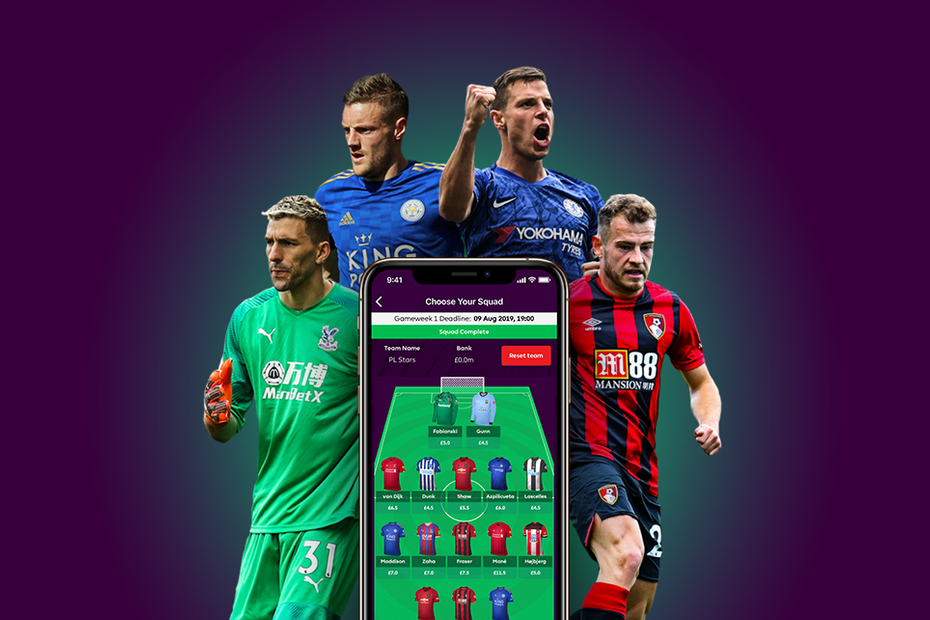In recent years, the Fantasy Premier League (FPL) has transcended its status as a mere online game to become a cultural phenomenon, particularly among men.
This virtual platform allows football enthusiasts to become virtual managers, selecting their dream team of real players from the English Premier League and competing against friends, colleagues, and strangers worldwide.
This article explores the intricacies of Men’s Fantasy Premier League, unraveling the reasons behind its immense popularity, the passion it ignites, and the factors contributing to its status as a burgeoning trend.
-
Understanding Fantasy Premier League:
a. Virtual Management Experience: Fantasy Premier League is an online game that allows participants, known as managers, to assemble and manage their own football team. The game is based on the real performances of players in the English Premier League, and participants compete against each other to accumulate points based on the actual statistical achievements of their selected players during the season.
b. Player Selection and Budgeting: Managers are given a virtual budget at the start of the season, and they must strategically allocate this budget to assemble a squad of 15 players. The squad typically consists of two goalkeepers, five defenders, five midfielders, and three forwards. Each player is assigned a specific value, and managers must navigate the budget constraints to create a competitive team.
c. Weekly Tactics and Transfers: Throughout the season, managers can make transfers to enhance their squad’s performance. They also have the responsibility of selecting a starting eleven each week, with players earning points based on their real-life performances. Tactical decisions, such as choosing a team captain and setting the formation, add an additional layer of strategy to the game.
d. Points System: The points system is comprehensive, rewarding players for goals, assists, clean sheets, and other positive contributions, while deducting points for disciplinary actions such as yellow and red cards. The accumulation of points week by week determines the manager’s overall standing in the Fantasy Premier League.
-
The Allure of Fantasy Premier League for Men:
a. Passion for Football: Men’s love for football is a well-documented and deeply ingrained aspect of their cultural identity. Fantasy Premier League taps into this passion by providing a personalized, participatory experience that allows men to engage with the sport on a more immersive level. It transforms passive viewers into active participants, fostering a deeper connection to the game.
b. Competition and Camaraderie: The competitive nature of Fantasy Premier League appeals to the innate desire for competition among men. Leagues are formed among friends, colleagues, and family members, creating a sense of camaraderie and friendly rivalry. The banter and discussions surrounding team performances add an extra layer of enjoyment to the overall football experience.
c. Strategic Thinking and Decision-Making: Men are drawn to the strategic elements of Fantasy Premier League, as it requires thoughtful decision-making and planning. The challenge of assembling a winning team within budget constraints, making shrewd transfers, and strategically utilizing the captaincy adds a layer of complexity that appeals to individuals who enjoy applying strategic thinking to their hobbies.
d. Escapism and Entertainment: Engaging with Fantasy Premier League provides a form of escapism for men, allowing them to momentarily step into the shoes of a football manager and escape the stresses of daily life. The entertainment value is heightened as participants watch real matches with a vested interest in the performances of their selected players.
-
Factors Contributing to the Trend:
a. Global Connectivity and Digital Platforms: The rise of digital platforms and global connectivity has played a pivotal role in the widespread adoption of Fantasy Premier League. Managers can compete with friends or join public leagues, creating a global community of football enthusiasts who share a common interest in virtual management and the English Premier League.
b. Social Media Integration: The integration of Fantasy Premier League with social media platforms amplifies its reach and impact. Managers share updates, discuss strategies, and engage in friendly banter on platforms like Twitter, Facebook, and Instagram. The social aspect of the game extends the community beyond the virtual pitch, fostering a sense of belonging and shared enthusiasm.
c. Fantasy Football Content Creation: The emergence of fantasy football content creators, including podcasts, blogs, and YouTube channels, has further fueled the trend. These creators offer insights, tips, and analysis that enhance the Fantasy Premier League experience. Men can consume this content to improve their managerial skills and stay informed about player performances and potential transfers.
d. Incentives and Prizes: Many private leagues and platforms offer incentives and prizes for top-performing managers. Whether it’s bragging rights among friends, office championships, or sponsored competitions with substantial prizes, the prospect of recognition and rewards serves as a powerful motivator for men to actively participate and strive for success.
-
Navigating the Challenges of Fantasy Premier League:
a. Player Injuries and Form: Managers face the constant challenge of adapting to the unpredictability of real football, including injuries and fluctuations in player form. A key player’s injury or a sudden loss of form can disrupt a carefully crafted team, requiring quick thinking and strategic transfers to mitigate the impact.
b. Fixture Congestion and Rotation: The congested fixture schedule in football, especially in the English Premier League, poses challenges for Fantasy Premier League managers. The need for squad rotation due to fixture congestion can impact player availability and playing time, necessitating careful planning to optimize team performance.
c. Budget Constraints and Player Prices: Managers must navigate the constraints of the virtual budget, making it crucial to identify undervalued players and make strategic transfers. The dynamic nature of player prices adds an element of financial management to the game, requiring managers to adapt to market trends and player performance.
d. Emotional Rollercoaster: The emotional rollercoaster of highs and lows, akin to the real-life football experience, is a challenge for many managers. A successful gameweek can lead to jubilation, while a disappointing performance may result in frustration. Managing emotions and maintaining a long-term perspective are essential for sustained success.
-
Fantasy Premier League Beyond the Game:
a. Cultural Impact and Rituals: Fantasy Premier League has become a cultural phenomenon, influencing rituals and traditions among friends and colleagues. Weekly team discussions, pre-match rituals, and post-match analyses become integral components of the overall football experience. The game’s impact extends beyond the virtual realm to shape social interactions and cultural practices.
b. Engaging New Audiences: The inclusivity and accessibility of Fantasy Premier League have contributed to engaging new audiences, including individuals who may not have been avid football fans. The game provides a gateway for newcomers to connect with the sport, fostering a broader and more diverse community of football enthusiasts.
c. Supporting Football Fandom: Fantasy Premier League serves as a bridge between football fandom and active participation. Men who may not have had direct affiliations with specific clubs or players develop a vested interest through their virtual teams. This increased engagement often translates into heightened support for specific teams or players in real-life football.
d. Interactive Sponsorship and Brand Engagement: The interactive nature of Fantasy Premier League creates unique opportunities for sponsorships and brand engagement. Companies and brands can align themselves with the game through partnerships, promotions, and interactive campaigns, leveraging the enthusiasm of the Fantasy Premier League community for mutual benefit.
-
How apple vision pro will push the virtual experience of Fantasy Premier League
Apple Vision Pro is the latest released product from Apple. Apple has invested immensely in augmented reality (AR) and virtual reality (VR) technologies.
Here are some ways it could potentially push the virtual experience of Fantasy Premier League:
Enhanced Match Viewing:
- Immersive Stadium Experience: Imagine feeling like you’re sitting right in the stands, experiencing the atmosphere, sights, and sounds of a Premier League match in real-time, complete with virtual crowds and player interactions.
- Multi-Angle Viewing: Watch the game from various angles, including behind the goal, on the pitch with players, or even from a bird’s-eye view, offering unique insights and strategic analysis.
- Player Overlays and Stats: View real-time player stats, heatmaps, and performance data overlaid on the virtual field, aiding in your fantasy decision-making.
Interactive Fantasy Management:
- Virtual Draft Room: Draft your team in a shared AR space with friends, physically interacting with virtual player cards and strategizing together.
- Real-Time Team Performance Visualization: See your team’s performance visualized in real-time on the virtual pitch, highlighting key plays and opportunities.
- Interactive Transfer Market: Scout and acquire new virtual players in an immersive 3D transfer market, negotiating deals and managing your budget dynamically.
Social Engagement and Competition:
- Virtual Pub Experience: Watch matches and discuss Fantasy Premier League strategies with friends in a virtual pub setting, complete with avatars and interactive features.
- Global Leaderboards and Challenges: Compete against other Fantasy Premier League managers in AR/VR challenges and mini-games, experiencing the thrill of victory in a more immersive way.
- Augmented Reality Overlays in Real-World Settings: Imagine seeing your virtual team players performing alongside real-world players on your TV screen, adding a new layer of engagement and excitement.
Additional Possibilities:
- Training Sessions with Virtual Coaches: Receive personalized coaching and tactical advice from virtual coaches in an immersive training environment.
- Interactive Educational Experiences: Learn about the history, rules, and strategies of Fantasy Premier League through interactive AR/VR tutorials and experiences.
- Virtual Fan Zones: Access exclusive AR/VR content, interact with other fans, and participate in challenges and giveaways.
Conclusion:
Men’s Fantasy Premier League has evolved from a niche hobby to a mainstream cultural phenomenon, blending the worlds of football fandom and virtual competition.
The passion, strategy, and sense of community that define the game have contributed to its widespread appeal, making it a trend that transcends age, background, and geographic boundaries.
As the virtual pitches continue to be populated with enthusiastic managers, the Fantasy Premier League phenomenon is set to endure, influencing not only how men engage with football but also how they connect with each other in the digital age.









